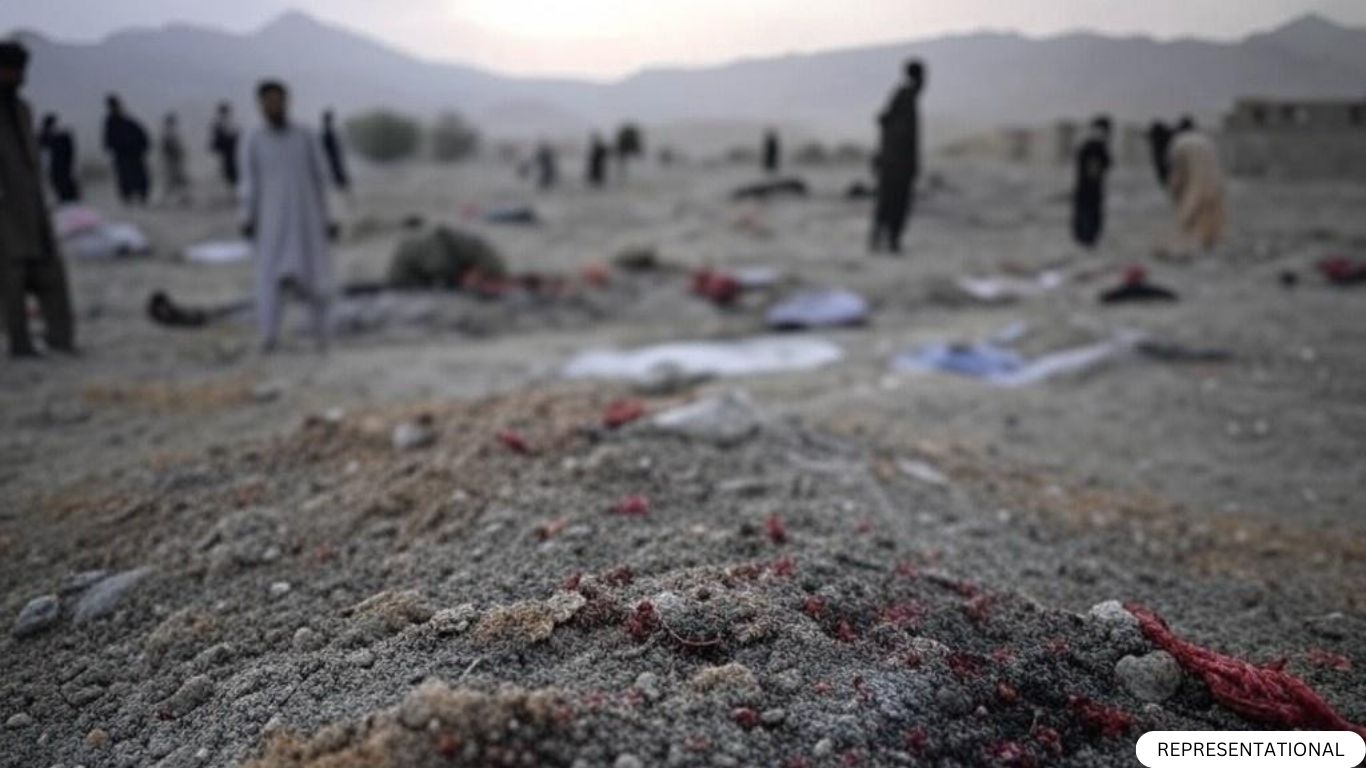Balochistan, Pakistan’s restive province, witnessed yet another tragic bombing on Saturday, killing at least six people, including paramilitary Frontier Corps (FC) troops, and injuring more than 25 others. The attack targeted a bus traveling from Karachi to Turbat, adding to the region’s escalating violence. The Balochistan Liberation Army (BLA), a separatist group, has claimed responsibility, further intensifying tensions in the area.
The Attack: What Happened?
Details of the Incident
The bombing occurred approximately seven kilometers west of Turbat, targeting a bus carrying FC troops. Among those killed were FC soldiers and civilians, highlighting the indiscriminate nature of the attack.
Rashid-ur-Rehman, a senior local police official, confirmed the casualties and stated that the exact details of the blast are still under investigation.
High-Profile Passengers
Senior Superintendent of Police (SSP) Zohaib Mohsin, along with his family, was reportedly on the bus as part of a wedding party. Officials believe he may have been the intended target.
BLA’s Claim of Responsibility
Jeeyand Baloch, the spokesperson for the BLA, announced that the attack was aimed at a convoy of Pakistani army personnel. The BLA has a history of targeting security forces and non-local Pakistanis in Balochistan, making this another calculated strike in their ongoing campaign.
Rising Violence in Balochistan
A Pattern of Attacks
Balochistan has faced decades of violence fueled by ethnic, sectarian, and separatist tensions. Recent months have seen a surge in attacks, particularly on security forces and infrastructure.
- November 2024: A bombing at Quetta’s railway station killed 26 people, including 14 soldiers.
- August 2024: Coordinated attacks by the BLA left 39 people dead, one of the deadliest incidents in recent years.
Militants’ Grievances
Separatist groups like the BLA accuse the Pakistani government and foreign entities of exploiting Balochistan’s natural resources without benefiting local communities. This has led to repeated attacks on energy projects and security forces.
The Broader Security Landscape
Statistics from 2024
The year 2024 has been particularly violent in Pakistan:
- Military Casualties: 383 soldiers killed.
- Militant Casualties: 925 militants killed.
Hotspots of Violence
The provinces of Balochistan and Khyber Pakhtunkhwa have borne the brunt of militant activity. These regions, bordering Afghanistan and Iran, are prone to cross-border influences and long-standing internal strife.
Implications of the Attack
Impact on Security Forces
Frequent attacks on security forces have raised concerns about operational vulnerabilities and the need for enhanced counter-terrorism measures.
Civilian Casualties and Trauma
The inclusion of civilians in such attacks underscores the human cost of ongoing violence, leaving families devastated and communities in fear.
Targeting Energy Projects
Balochistan’s rich natural resources have made it a focal point for foreign-funded energy projects. However, militant activities deter investments and jeopardize development in the region.
Government and Military Response
Condemnation of Violence
The Pakistani government has strongly condemned the attack, vowing to bring the perpetrators to justice.
Security Measures
Authorities are expected to ramp up security in the region, focusing on safeguarding key infrastructure and countering separatist activities.
International Concerns
Border Dynamics
Balochistan’s strategic location, bordering Afghanistan and Iran, adds an international dimension to its internal conflicts. The region is often a hotspot for smuggling, insurgencies, and proxy battles.
Global Attention on Human Rights
Militant violence and heavy-handed security operations have drawn criticism from international human rights organizations, calling for a balanced approach to address local grievances.
A Province in Peril
The bombing in Balochistan is a stark reminder of the province’s persistent instability and the high human cost of ongoing conflicts. As separatist groups like the BLA continue their violent campaigns, the Pakistani government faces mounting pressure to address both security challenges and the underlying socio-economic grievances fueling the unrest. The path to peace remains fraught with challenges, requiring a concerted effort from both national and international stakeholders.















